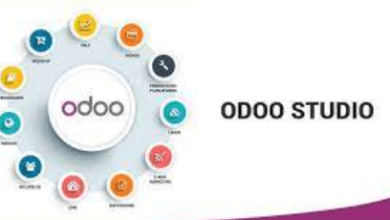Exploring Key Ways to Automate Your Business

Automation has become an integral part of modern business operations, helping organizations save time, reduce errors, and enhance efficiency. By leveraging automation tools, businesses can streamline processes, improve productivity, and focus on more strategic initiatives. Whether it’s managing routine administrative tasks, improving customer service, or optimizing financial operations, automation can transform the way a company functions. This article explores various ways businesses can adopt automation across different departments, including accounting, to maximize efficiency and reduce the manual burden on employees.
Streamlining Administrative Tasks
Administrative tasks often consume a significant portion of time and resources, yet they are essential for the smooth operation of a business. Automating these tasks allows employees to focus on more strategic activities that directly contribute to the company’s growth. One of the most common areas for automation is scheduling and appointment management. Tools like Calendly or Google Calendar enable businesses to automate meeting scheduling, reducing the back-and-forth communication that often occurs when trying to align multiple schedules. Automating these processes saves time and ensures that meetings are booked efficiently.
Another administrative area ripe for automation is email management. Email automation tools such as Mailchimp or ActiveCampaign can automatically send out newsletters, promotional emails, or follow-up communications based on pre-set triggers or schedules. This ensures that marketing efforts are consistent and timely, without requiring constant manual input. In addition, automation can handle responses to common inquiries, allowing customer support teams to focus on more complex queries.
See also: Boost Your Business: Essential Reasons to Implement Odoo Dashboards
Enhancing Customer Service with Automation
Customer service is another area where automation can deliver significant improvements. Automated customer service tools, such as chatbots, allow businesses to provide instant responses to client inquiries, improving customer satisfaction while reducing the workload for support staff. Chatbots can handle frequently asked questions, guide users through processes, and even escalate issues to human agents when necessary.
Moreover, customer relationship management (CRM) systems can be automated to track interactions with clients, manage follow-ups, and nurture leads. Platforms like Salesforce or HubSpot can automate communication sequences based on client behavior, ensuring that no lead is neglected and that customers receive timely, relevant information. These tools allow businesses to personalize interactions at scale, enhancing the overall customer experience while reducing the time spent on manual outreach.
Automation also plays a key role in customer feedback collection. Surveys and feedback forms can be automatically sent to customers after specific interactions, such as completing a purchase or receiving customer support. This provides valuable insights into customer satisfaction and helps businesses identify areas for improvement.
Automating Accounting Processes
Accounting is an area where automation can yield significant benefits in terms of accuracy, efficiency, and time savings. Manual accounting processes are not only time-consuming but also prone to human error, which can lead to compliance issues and financial discrepancies. By implementing accounting automation tools, businesses can streamline tasks such as bookkeeping, invoicing, and payroll, allowing for faster and more accurate financial management.
One of the key advancements in this area is that of document automation. This technology automates the management and processing of financial documents, such as invoices, receipts, and statements. Rather than manually entering data, accounting document automation extracts relevant information from documents, organizes it, and integrates it into accounting systems. This reduces the risk of errors and speeds up the entire process, ensuring that financial records are up to date and accurate.
Automating payroll processing is another valuable use of accounting automation. Tools like QuickBooks or Gusto can automatically calculate wages, withhold taxes, and generate pay stubs, ensuring that employees are paid accurately and on time. This also simplifies tax reporting, as payroll data is automatically recorded and can be easily accessed for filing purposes.
Conclusion
Automation offers businesses the opportunity to optimize operations, reduce manual workloads, and improve accuracy across multiple functions, from administration and customer service to accounting and marketing. By adopting automation technologies, businesses can not only improve efficiency but also free up valuable time for employees to focus on strategic initiatives that drive growth. Whether it’s implementing document automation or leveraging chatbots for customer service, automating key processes ensures that businesses remain competitive and adaptable in today’s fast-paced market. Embracing automation is essential for any business looking to streamline operations and achieve long-term success.







